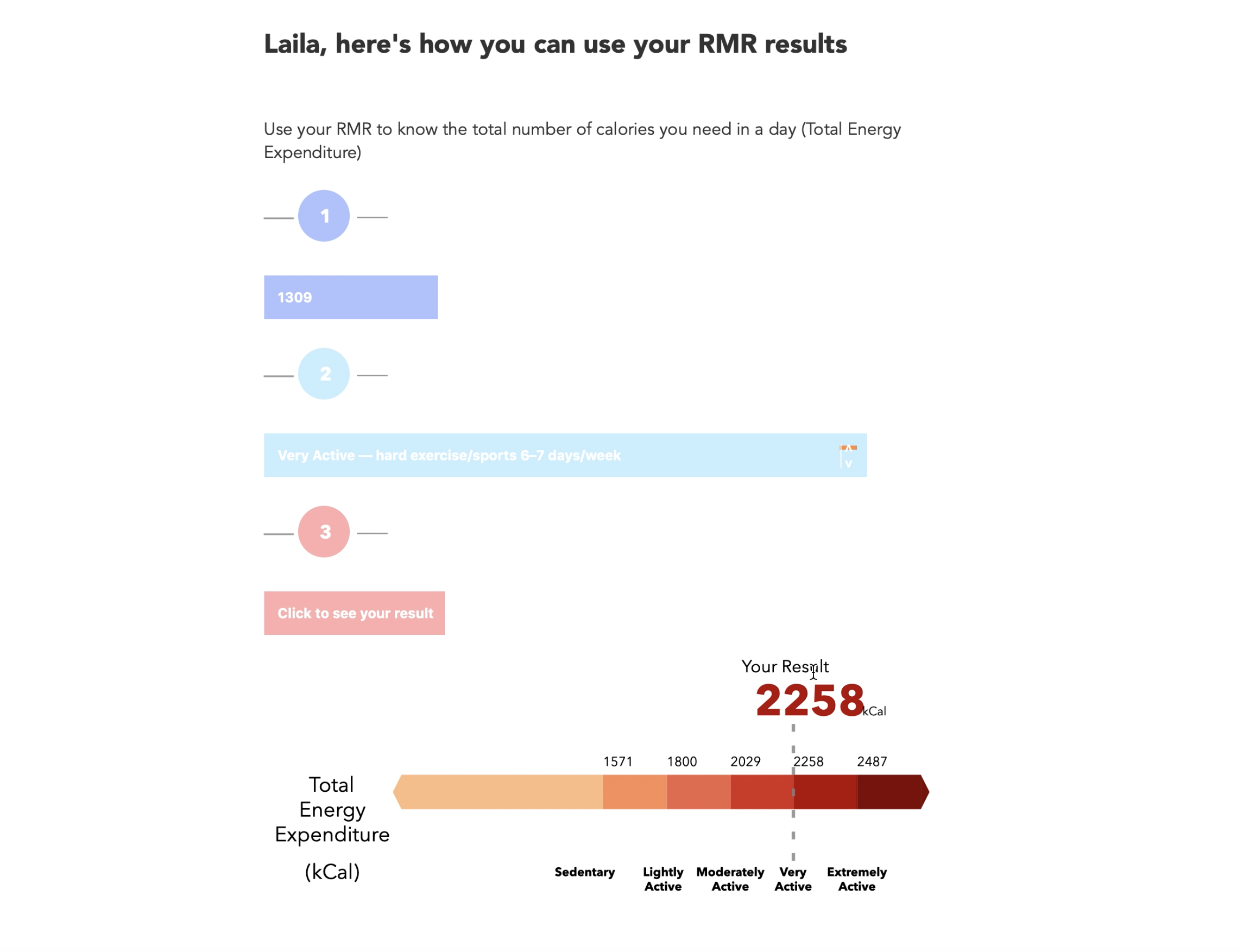Metabolic Testing: Why I Measure My Resting Metabolic Rate
Summary:
Yes, you can measure the number of calories your body needs. This is important information for planning your diet, because everybody is different.
What is the Resting Metabolic Rate and why is it important?
Our bodies need energy to do work. Food provides calories, and calories are used for energy. Metabolism is the process by which your body changes the food and liquid you take in into energy for use.
The Resting metabolic rate (RMR) is a set of measures of your metabolism when you are resting. It shows the minimum number of calories that your body needs to function normally. It can also be used to calculate the total number of calories that your body needs to walk, think, talk and breathe throughout the day. It is an important piece of information in making a weight and health management plan.
Your resting metabolic rate is influenced by your age, sex (born male or female), amount of body fat and muscle, the amount of exercise that you do, your diet, hormones, genetics and more. Two people with the same weight and height can have very different metabolic rates and energy needs, and therefore knowing your exact number will help you control your weight and health.
Two people with the same weight and height can have very different metabolic rates and energy needs, and therefore knowing your exact number will help you better manage your weight and long-term health.
My resting energy expenditure is 1309 kcal/day.
How do you measure your RMR?
The RMR test I have done uses a state-of-the-art metabolic cart for expired gas exchange analysis (VO2, VCO2). It is highly accurate and has been widely recognized as the gold standard for metabolic measurement in applied human physiology research.
How I use my own RMR results to manage diet
This short video I took shows how I use my test results to determine the number of calories I should eat in a day. See comments above for how I change this based on my goals (maintaining weight vs. losing weight or body fat).
The above tool gives me the number of calories that I need in a day to maintain weight. Yes, I do eat ~ 2200+ Kcal/day.
For losing weight, I only subtract about 10% (or 15%) from the total, so nothing more than 250-350 Kcal/day. I find anything more than that not sustainable in the long term.
For losing body fat, I subtract the 10-15%, while maintaining my protein intake at 1g of protein per 1 lbs of lean mass (see upcoming blog post about my body composition results).
Other results from the Resting Metabolic Rate test include the Respiratory Exchange Ratio (RER). This shows what the body is using to make energy. Healthy people should be able to rely on fat for energy at rest.
My RER is 0.85. This means that I burn fat and carbs equally.
See diagram on the right.
My estimated energy expenditure (based on weight, height and age) is 1232 kcal/day.
Note: You can estimate your resting energy expenditure using the Mifflin-St Jeor equation:
Female: RMR= (9.99 x weight) + (6.25 x height) – (4.92 x age) – 161.
Mifflin MD, St Jeor ST, Hill LA, Scott BJ, Daugherty SA, Koh YO. A new predictive equation for resting energy expenditure in healthy individuals., Am J Clin Nutr., 1990 Feb;51(2):241-7. PMID: 2305711
So my actual (measured) resting metabolic rate is higher than expected.
While a difference of < 100kcal/day might not seem like a lot, it actually is. When reducing calories for weight loss, it usually a good practice to restrict your calories by no more than 10-15% for weight loss to be sustainable over time. In my case, 10% is about 130 kcal/day, so having an accurate number does matter, and a difference of 100 kcal between the actual (measured) RMR and the estimated one can mean the difference between successful weight management and a frustrating diet journey.
Questions? Please reach out!
Laila


